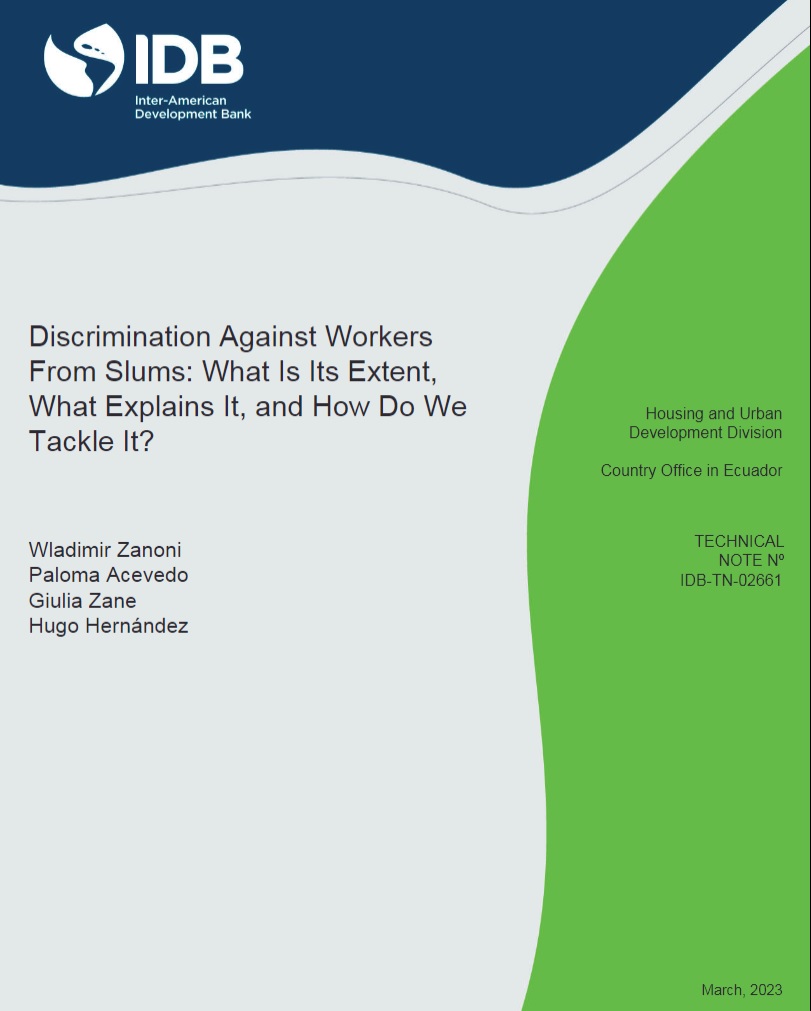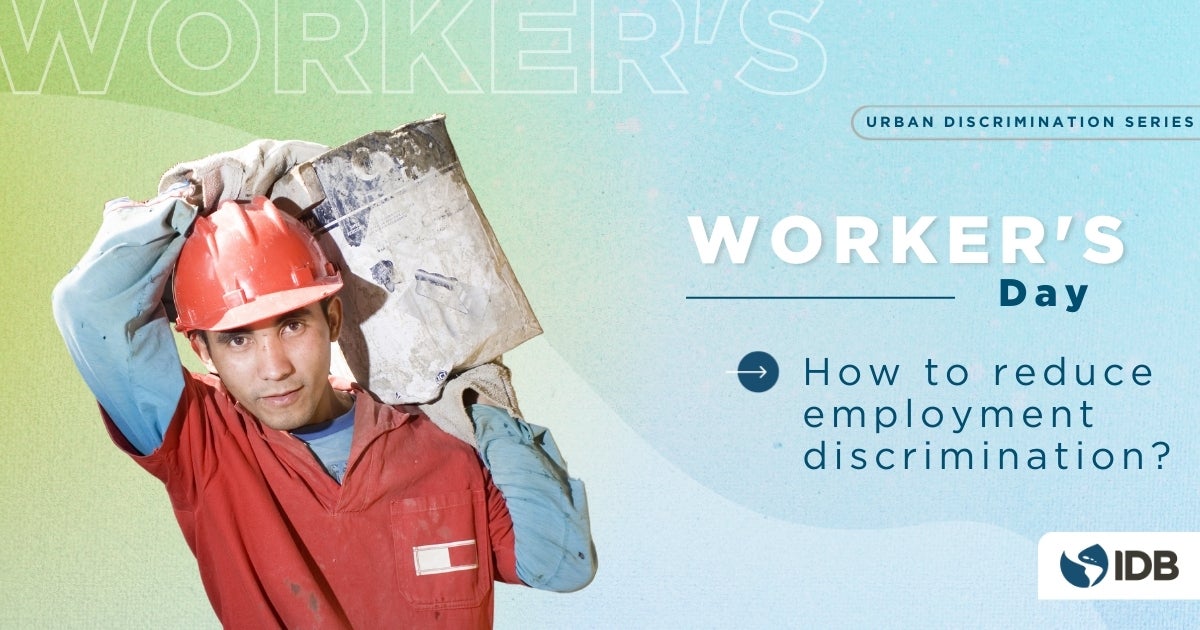Este artículo está también disponible en / This post is also available in: Spanish
More than 20% of Latin Americans and Caribbeans feel they are discriminated against. Unfortunately, this is not just a perception; discrimination is an invisible reality and has a lot to do with purchasing power and place of residence. Last year, on the occasion of International Workers’ Day, we published an article showing how the IDB had found that people living in vulnerable neighborhoods have almost 30% less chance of getting a job than those in a formal neighborhood, despite having similar qualifications. Now that the evidence is in, it is time for action: what can we do to reduce this discrimination and equalize opportunities for the people who are affected by it?
In this article, which is part of a series of blogs on urban discrimination, we report on a new IDB study that uses a new methodology to answer the following questions about discrimination in the workplace: What other variables are affected by discrimination against people living in informal settlements? What explains it? And most importantly, how can we reduce it?
How has the IDB studied discrimination in this new research?
In 2022, the IDB released a first study on urban discrimination using a methodology known as “matching studies,” which is widely used to measure this phenomenon. Following the methodology, we sent applications to almost 4,000 real job offers online. For each job we sent two candidate profiles, which had equivalent personal characteristics, education, and experience. They only differed in their place of residence: one lived in an informal settlement (also called camp, villa, or favela), while the other lived in a formal neighborhood (although of a similar socioeconomic level).

This year we have just published a second study to deepen the analysis. To do so, we recruited 267 human resources agents from the real labor market, who were asked to select fictitious candidates on an online platform. This allowed us to find out more about the phenomenon of discrimination. Each of the recruited agents was asked to participate in a recruitment exercise where they had to select between pairs of candidates for ten different positions. And – you have probably guessed it – each pair of candidates had similar personal and professional characteristics. The only variation was the neighborhood of residence. While one lived in an informal settlement- campamento, favela, villa – the other lived in a formal neighborhood, albeit of equivalent socioeconomic status.
In addition to asking the human resources agents to tell us to whom they would offer each of the positions, we asked them to say what salary they would offer each of the candidates. Finally, we asked them to rate each candidate on a scale of 1 to 10. All the above was carried out through an on-line platform. Before starting the exercise, we asked each agent to fill in some modules with personal information and to take several personality tests on the same platform.
As part of the study, we incorporated a “behavioral economics” intervention, so that after doing round 8 of candidate selection, we showed them a message to inform them about the job discrimination faced by people living in informal neighborhoods. Then, they finished their exercise with two more rounds of screening.
What did we find out about discrimination?
- Persistence of discrimination towards informal neighborhood settlements: formal neighborhood dwellers were selected 5.8 times out of ten, while informal neighborhood dwellers were selected 4.2 times. In addition, human resources agents considered the inhabitants of informal neighborhoods to be less qualified to carry out their work. In fact, they were offered lower salaries (despite having a similar profile!). This result validated the results of the previous study.
- Discrimination in selecting employees seemed to be motivated by what is called “taste based discrimination” (a type of exclusion based on pure prejudice). However, when determining salary, human resources agents relied more on “statistical discrimination,” which judges a person based on the characteristics of the group to which he or she belongs rather than on his or her own personal characteristics. We found a correlation between some psychological characteristics of human resources agents and the discrimination ratio. Although further analysis would be necessary to evaluate the psychological traits of the agents, the study found a statistical association between empathy and discrimination, with agents who are less able to put themselves in the shoes of others being the ones who discriminated the most.

What can we do to reduce discrimination?
Between rounds 8 and 9 of the exercise we presented HR agents with the following message:
“An Inter-American Development Bank study recently conducted in your city found that, even though they have equal job training and work experience, people in informal neighborhoods are selected for jobs more than 20% less often than people in formal neighborhoods.”
We took advantage of the design of the exercise (namely that the position for which they had to select appeared in a random order) to causally estimate the impact of the intervention on discrimination levels. We found that simply showing them that message was enough to generate a positive impact and reduce discrimination in a statistically significant way.
What lessons can we apply to urban public policy?
In line with the conclusions of the first article in this series (available here), there are three paths to follow if we want to reduce discrimination:
- Measure: monitor the existence of discrimination in different spheres of society. For example, using one of the methodologies presented here.
- Act: carry out anti-discrimination interventions to reduce discrimination. An example is to provide information, as presented in this study.
- Legislate: create laws to prevent, detect and punish discrimination.
What lessons can we apply to urban policy? Development programs that focus on vulnerable areas seek to integrate their inhabitants to offer them equal opportunities. However, if the rest of the population discriminates against them, they will continue to face an invisible barrier that will limit their development. It is important for public administrations to work so that the inhabitants of formal neighborhoods change their perception of those who live in vulnerable neighborhoods, so that they can benefit from greater integration and all the opportunities offered by the city.


Leave a Reply